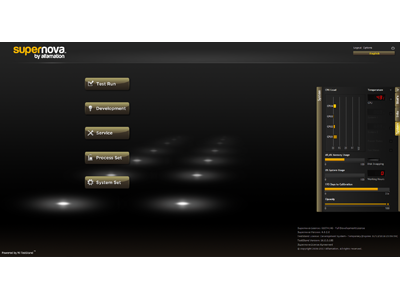Alfamation has launched the latest version, 4.0, of its Supernova Test Application Framework software, which unleashes the power of NI TestStand. The new version adds new tools and backup capabilities, improved performance and more flexible administration features.
Supernova is a configuration-based automated test environment that integrates with NI’s TestStand test management software to simplify access to high-end test capabilities. Through Supernova, a test engineer can easily manage all test tasks in a single environment, accessing everything required in one easy-to-use tool. This helps test deployment by reducing time spent on analysis, training and customizations to quickly meet industry's most challenging use cases.
With Supernova, engineers can undertake advanced tasks by simply changing configurations, without having to write a single line of programming code. This helps companies to make the most of limited resources and typically reduces time to market by a factor of 10.
Managing product variants is also substantially simplified, and with automated multi-site testing, engineers can "develop once, deploy many." Supernova separates the test application, which does not need to change, from the test process, which can be easily adapted to each factory.
Development, debugging and deployment tasks are now all accessible within a single integrated work environment, thus enabling a test engineer to smoothly transition from test development to final deployment. An additional benefit of Supernova is that inherently error prone tasks are greatly reduced and no architecture software skills are needed since the test process can be easily customized without modifying the process model.
“Supernova is already a proven industry-leading software platform for test systems; this new upgraded version makes it even better," said Mauro Arigossi, CEO of Alfamation. “We have made it more flexible, easier to manage, and have reduced the learning curve to help test engineers focus more on value-generating testing than on time-consuming coding tasks.”
The updated 4.0 version supports a 64-bit architecture and is fully tested and supported for Windows 10. To further improve its performance, the new version has been optimised for multi-core processors.

